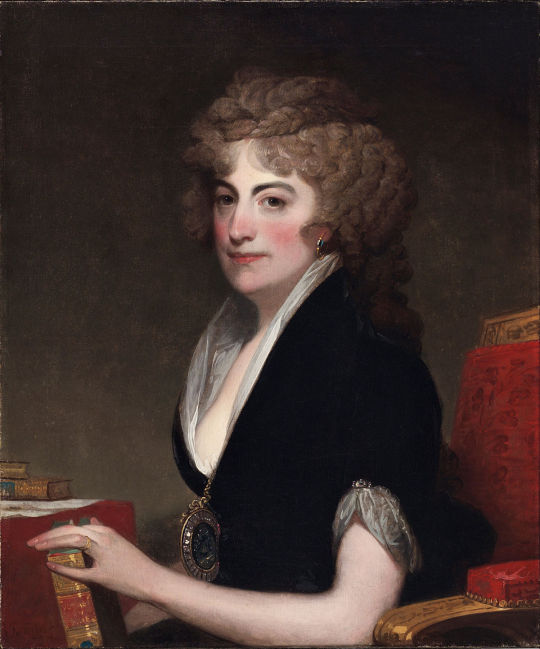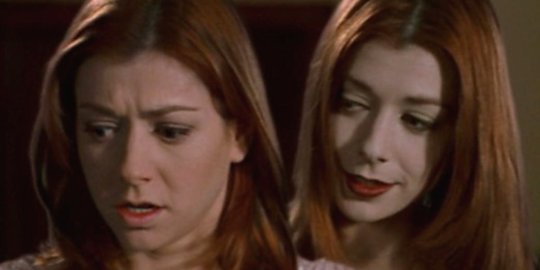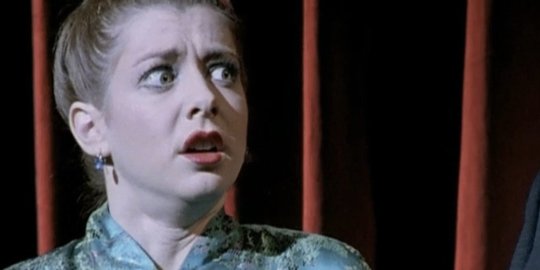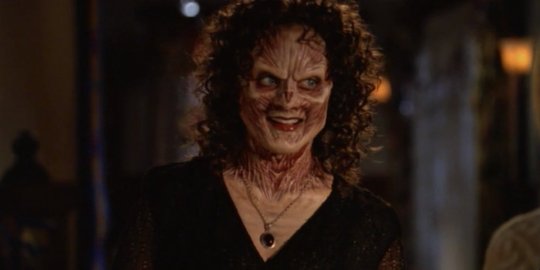#there was this part where a female poet was referred to as '[name]'s sister' and he corrected it and said
Text
been listening to refaat alareer's lectures on poetry on the subway and it's brought me to tears several times. i want to transcribe them and compile a document of all of them as soon as possible.
#there was this part where a female poet was referred to as '[name]'s sister' and he corrected it and said#to be careful not to restrict women to men's shadows even if these men are their family and#when i heard that i thought of that fuckface reporter who kept interrupting the palestinian speaker she was hosting#and she said 'you're probably not used to women speaking'#anyway. i love his words and i feel like i have more a connection to poetry than i've ever ever had through him#he said something very enlightening about resistance through poetry#and i don't want to paraphrase because i want to transcribe and share his exact words but god. god. i've never felt the power of poetry so#so strongly*
45 notes
·
View notes
Text
january reading
why does january always feel like it’s 3 months long. anyway here’s what i read in january, feat. poison experts with ocd, ants in your brain, old bolsheviks getting purged, and mountweazels.
city of lies, sam hawke (poison wars #1)
this is a perfectly nice fantasy novel about jovan, who serves as essentially a secret guard against poisoning for his city state’s heir and is forced to step up when his uncle (also a secret poison guard) and the ruler are both killed by an unknown poison AND also the city is suddenly under a very creepy siege (are these events related? who knows!) this is all very fine & entertaining & there are some fun ideas, but also... the main character has ocd and SAME HAT SAME HAT. also like the idea of having a very important, secret and potentially fatal job that requires you to painstakingly test everything the ruler/heir is consuming WHILE HAVING OCD is like... such a deliciously sadistic concept. amazing. 3/5
my heart hemmed in, marie ndiaye (translated from french by jordan stump)
a strange horror-ish tale in which two married teachers, bastions of upper-middle-class respectability and taste, suddenly find themselves utterly despised by everyone around them, escalating until the husband is seriously injured. through several very unexpected twists, it becomes clear that the couple’s own contempt for anyone not fitting into their world and especially nadia’s hostility and shame about her (implied to be northern african) ancestry is the reason for their pariah status. disturbing, surprising, FUCKED UP IF TRUE (looking back, i no longer really know what i mean by that). 4/5
xenogenesis trilogy (dawn/adulthood rites/imago), octavia e. butler
octavia butler is incapable of writing anything uninteresting and while i don’t always completely vibe with her stuff, it’s always fascinating & thought-provoking. this series combines some of her favourite topics (genetic manipulation, alien/human reproduction, what is humanity) into a tale of an alien species, the oankali, saving some human survivors from the apocalypse and beginning a gene-trading project with them, integrating them into their reproductive system and creating mixed/’construct’ generations with traits from both species. and like, to me, this was uncomfortably into the biology = destiny thing & didn’t really question the oankali assertion that humans were genetically doomed to hierarchical behaviour & aggression (& also weirdly straight for a book about an alien species with 3 genders that engages in 5-partner-reproduction with humans), so that angle fell flat for me for the most part, altho i suppose i do agree that embracing change, even change that comes at a cost, is better than clinging to an unsustainable (& potentially destructive) purity. where i think the series is most interesting is in its exploration of consent and in how far consent is possible in extremely one-sided power dynamics (curiously, while the oankali condemn and seem to lack the human drive for hierarchy, they find it very easy to abuse their position of power & violate boundaries & never question the morality of this. in this, the first book, focusing on a human survivor first encountering the oankali and learning of their project, is the most interesting, as lilith as a human most explicitly struggles with her position - would her consent be meaningful? can she even consent when there is a kind of biochemical dependence between humans and their alien mates? the other two books, told from the perspectives of lilith’s constructed/mixed children, continue discussing themes of consent, autonomy and power dynamics, but i found them less interesting the further they moved from human perspectives. on the whole: 2.5/5
love & other thought experiments, sophie ward
man, we love a pierre menard reference. anyway. this is a novel in stories, each based (loosely) on a thought experiment, about (loosely) a lesbian couple and their son arthur, illness and grief, parenthood, love, consciousness and perception, alternative universes, and having an ant in your brain. it is thoroughly delightful & clever, but goes for warmth and humanity (or ant-ity) over intellectual games (surprising given that it is all about thought experiments - but while they are a nice structuring device i don’t think they add all that much). i haven’t entirely worked out my feelings about the ending and it’s hard to discuss anyway given the twists and turns this takes, but it's a whole lot of fun. 4/5
a general theory of oblivion, josé eduardo agualusa (tr. from portuguese by daniel hahn)
interesting little novel(la) set in angola during and after the struggle for independence, in which a portuguese woman, ludo, with extreme agoraphobia walls herself into her apartment to avoid the violence and chaos (but also just... bc she has agoraphobia) with a involving a bunch of much more active characters and how they are connected to her to various degrees. i didn’t like the sideplot quite as much as ludo’s isolation in her walled-in flat with her dog, catching pigeons on the balcony and writing on the walls. 3/5
cassandra at the wedding, dorothy baker
phd student cassandra returns home attend (sabotage) her twin sister judith’s wedding to a young doctor whose name she refuses to remember, believing that her sister secretly wants out. cass is a mess, and as a shift to judith’s perspective reveals, definitely wrong about what judith wants and maybe a little delusional, but also a ridiculously compelling narrator, the brilliant but troubled contrast to judith’s safer conventionality. on the whole, cassandra’s narrative voice is the strongest feature of a book i otherwise found a bit slow & a bit heavy on the quirky family. fav line is when cass, post-character-development, plans to “take a quick look at [her] dumb thesis and see if it might lead to something less smooth and more revolting, or at least satisfying more than the requirements of the University”. 3/5
the office of historical corrections, danielle evans
a very solid collection of realist short stories (+ the titular novella), mainly dealing with racism, (black) womanhood, relationships between women, and anticolonial/antiracist historiography. while i thought all the stories were well-done and none stood out as weak or an unnecessary inclusion, there also weren’t any that really stood out to me. 3/5
sonnenfinsternis, arthur koestler (english title: darkness at noon) (audio)
you know what’s cool about this book? when i added it to my goodreads tbr in 2012, i would have had to read it in translation as the german original was lost during koestler’s escape from the nazis, but since then, the original has been rediscovered and republished. yet another proof that leaving books on your tbr for ages is a good thing actually. anyway. this is a story about the stalinist purges, told thru old bolshevik rubashov, who, after serving the Party loyally for years & doing his fair share of selling people out for the Party, is arrested for ~oppositional activities. in jail and during his interrogations, rubashov reflects on the course the Party has taken and his own part (and guilt) in that, and the way totalitarianism has eaten up and poisoned even the most commendable ideals the Party once held (and still holds?), the course of history and at what point the end no longer justifies the means. it’s brilliant, rubashov is brilliant and despicable, i’m very happy it was rediscovered. 5/5
heads of the colored people, nafissa thompson-spires
another really solid short story collection, also focused on the experiences of black people in america (particularly the black upper-middle class), black womanhood and black relationships, altho with a somewhat more satirical tone than danielle evans’s collection. standouts for me were the story in letters between the mothers of the only black girls at a private school, a story about a family of fruitarians, and a story about a girl who fetishises her disabled boyfriend(s). 3.5/5
pedro páramo, juan rulfo (gernan transl. by dagmar ploetz)
mexican classic about a rich and abusive landowner (the titular pedro paramo) and the ghost town he leaves behind - quite literally, as, when his son tries to find his father, the town is full of people, quite ready to talk shit about pedro, but they are all dead. it’s an interesting setting with occasionally vivid writing, but the skips in time and character were kind of confusing and i lost my place a lot. i’d be interested in reading rulfo’s other major work, el llano en llamas. 2.5/5
verse für zeitgenossen, mascha kaléko
short collection of the poems kaléko, a jewish german poet, wrote while in exile in the united states in the 30-40s, as well as some poems written after the end of ww2. kaléko’s voice is witty, but at turns also melancholy or satirical. as expected i preferred the pieces that directly addressed the experience of exile (”sozusagen ein mailied” is one of my favourite exillyrik pieces). 3/5
the harpy, megan hunter
yeah this was boooooooring. the cover is really cool & the premise sounded intriguing (women gets cheated on, makes deal with husband that she is allowed to hurt him three times in revenge, women is also obsessed with harpies: female revenge & female monsters is my jam) but it’s literally so dull & trying so hard to be deep. 1.5/5
the liar’s dictionary, eley williams
this is such a delightful book, from the design (those marbled endpapers? yes) to the preface (all about what a dictionary is/could be), to the chapter headings (A-Z words, mostly relating to lies, dishonesty, etc in some way or another, containing at least one fictitious entry), to the dual plots (intern at new edition of a dictionary in contemporary england checking the incomplete old dictionary for mountweazels vs 1899 london with the guy putting the mountweazels in), to williams’s clear joy about words and playing with them. there were so many lines that made me think about how to translate them, which is always a fun exercise. 3.5/5
catherine the great & the small, olja knežević (tr. from montenegrin by ellen elias-bursać, paula gordon)
coming-of-age-ish novel about katarina from montenegro, who grows up in titograd/podgorica and belgrad in the 70s/80s, eventually moving to london as an adult. to be honest while there are some interesting aspects in how this portrays yugoslavia and conflicts between the different parts of yugoslavia, i mostly found this a pretty sloggy slog of misery without much to emotionally connect to, which is sad bc i was p excited for it :(. 2/5
the decameron project: 29 new stories from the pandemic, anthology
a collection of short stories written during covid lockdown (and mostly about covid/lockdown in some way). they got a bunch of cool authors, including margaret atwood, edwidge danticat, rachel kushner ... it’s an interesting project and the stories are mostly pretty good, but there wasn’t one that really stood out to me as amazing. i also kinda wish more of the stories had diverged more from covid/lockdown thematically bc it got a lil repetitive tbh. 2/5
#the books i read#long post#sonnenfinsternis is so good the audiobook nearly made me cry in the supermarket
4 notes
·
View notes
Text
Ann(e) Willing Bingham and William Bingham
William Bingham was a prominent Philadelphia merchant and banker. From 1776 to 1780 he served as agent of the Continental Congress at Martinique and as consul at St. Pierre in the West Indies. He was a Federalist who various served as a member of the Continental Congress in 1787 and 1788 and a member of the Pennsylvania House of Representatives in 1790 and 1791. He served in the Pennsylvania Senate in 1794 and 1795, and from 1795 to 1801 he was a member of the United States Senate. Bingham was Founder and Director of the Bank of North America an Chairman of the committee of the board of directors of the Bank of the United States. He was also te first president of the Philadelphia and Lancaster Turnpike Corporation. He founded Binghamton, New York, and he owned large tracts of land in Pennsylvania and the District of Maine (part of which he had purchased from Henry and Lucy Knox). (To keen AH historians, Bingham was the person entrusted - or maybe not - with the Reynolds letters.)
Anne Willing was the daughter of Thomas Willing, a prominent Philadelphia merchant and banker who was also President of the Bank of North America and Bank of the U.S. (In 1783, John B. Church was the second largest stockholder in the Bank of North America - AH asked Willing in 1790 to serve as Church’s attorney as his shares were being sold.) Both Thomas and William are counted among the wealthiest men in America in this period. Anne married William Bingham in 1780, shortly after her sixteenth birthday. She is sometimes referred to as the “uncrowned queen of the Republican court.”

(I get a kick that her wedding ring seems to be a gimmel ring.) The Adams family supplies some of the best descriptions of her:
“Mrs. Bingham is a very young Lady, not more than 20, very agreeable, and very handsome: rather too much given to the foibles of the Country for the mother of two Children, which she already is.” - Abigail Adams to Mercy Otis Warren, 5Sept1784
...Mrs. Bingham, who taken all together is the finest woman I ever saw. The intelligence of her countanance, or rather I ought to say animation, the Elegance of her form, and the affability of her Manners, converts you into admiration, and one has only to lament too much dissapation and frivolity of amusement, which has weand her from her Native Country; and given her a passion and thirst after all the Luxeries of Europe. - Abigail Adams to Mercy Otis Warren, 30Sept1785
Mr and Mrs Bingham arrived here about 3 weeks ago with a full determination to go out to America in March, but having as usual Spaired no pains to get introduced to the families of my Lord Landsdown and my Lady Lucans, they are so supreemly blest, that poor America looks like a bugbear to them. “O! now I know mr Bingham you wont go out this Spring. Give me but ten Years, and take all the rest of my Life.” Who can withstand flattery and admiration? What female mind young beautifull rich—must she not be more than woman if vanity was not the predominate passion? I accompanied her last thursday to Court and presented her both to the King and Queen, and I own I felt not a little proud of her. St James’s did not, and could not produce an other so fine woman. Yet it was the most crouded drawing Room I ever attended, except the late Birth Day. You know this Ladies taste in dress is truly elegant. She had prepaird herself in France for this occasion, and being more fleshy than I have seen her before, she is concequently handsomer than ever.
“She Shone a Goddess, and She moved a Queen.”
The various whispers which I heard round me, and the pressing of the Ladies to get a sight of her, was really curious, and must have added an attom to the old score, for she could not but see how attractive She was. Is she an American, is she an American, I heard frequently repeated? And even the Ladies were obliged to confess that she was truly an elegant woman. You have, said an English Lord to me, but whose name I knew not, one of the finest Ladies to present, that I ever saw. The Emperers Ambassador12 Whisperd your Pappa, sir your Country produces exceeding fine women. Abigail Adams to John Q Adams, 16Feb1786
Madame B. shone away in all her splendor, her dress was that she wore last Winter black and Pink, and I have not seen so elegant a Woman, since I have been in England. A Gentlem[an] who sat next me at table Told me I was in Love with her. O it is true that I never see her without admiration in the highest degree.Abigail “Nabby” Adams to her brother John Quincy Adams, 22 January 1786 courtesy thelittlelionofvalleyforge
Anne W. Bingham died on May 11, 1801 in Bermuda, where she had gone with her family after failing to recover from childbirth (there’s some speculation she had contracted tuberculosis)..
I may associate with the preceding, the information of another loss, which our City has sustained by the death of Mrs: Bingham; of whose illness and long confinement you may have heard. After all hope of her recovery was given over by her Physicians, the last prescription they could give with a prospect of benefit or relief, was a voyage to some Southern climate. She was accordingly embarked on board a ship, accompanied by her husband daughter & Sister and a young Physician. The first effects of a change of air were very favorable & flattered her friends, that her case was less desperate than they had imagined; she sustained the voyage, however, very poorly, and survived her arrival at Bermudas, but three days. Mr: Bingham returned with the rest, a day or two ago & was the first to announce the fatal tidings to the family of his deceased lady, who, as you will readily suppose, are plunged, by this stroke of the fell destroyer, into the abyss of woe & grief. Mrs: Bingham is said to have borne her tedious illness with uncommon fortitude, & when hope had utterly forsaken her own bosom, she displayed a perfect example of resignation. Thomas Bolyston Adams to AA, 31May1801
I had learnt before, by the public papers, the death of mrs Bingham and many have been my reflection[s] upon it. Health presuming, Beauty Blooming, ah how dreadfull tis to dye,” Says fair Rossomond; that Mrs Bingham was one of the most Elegant, and highly accomplishd women, our Country has furnished, no one who knew her, will deny. to a fine form, was added an affability of address, and an ease of manners, which prepossesst and captivated all who approachd her. She had travelled, and obtained the high polish of the Beau Mond; but her conduct in many respects did not accord with my Ideas of female worth, delicacy and purity. She did not Sufficiently respect herself, nor the opinion of the world; particuliarly <, Start deletion,that, End,> those of her own Country.She was culpable in a latitude of Manners, and in introducing a mode of dress which as a Mother, she ought not to have permitted in her daughters—If I have any knowledge of human nature, the Stile of dress introduced by her, and copied by her daughters, has a direct tendency to seduce the unwary; to Create inflammatory passions, and call forth lose affections by unfolding to every Eye, what the veil of Modesty ought to Shield; and the mantle of fashion ought to cover; it originated with Harlots, and should not have betrayed a modest woman into the Snare; the concequences have been Seen in her own Family, and are of too recent a date, to need relating—Mrs Binghams Family, Fortune, Beauty and accomplishments gave her a lead in Society, and her influence extended far beyond the bounds of Your City: Was that influence employd in the various Services of virtue, was it excercised in confirming and prolonging the duration of virtuous affections, in a simplicity of Manners, or in a latitude which gave occasion for censure, and which approached so near the verge of crimminality, as to be evil spoken of. Chastity when founded on the firm basis of pure virtue, holds forth to the Eye of the most artfull the repulsive evidence of impregnable Security, which can awe the most dissolute into respect and admiration—and as the poet expressess it, She that hath that, is clad in compleat Steel”That Mrs Bingham had many amiable qualities I well know. her Friends, Relatives and domesticks can bear witness to them. With them I sympathize; by them her loss must be keenly felt—The worthy old Lady, whose children rise up and call her blessed, and whose remains you lately attended to the grave, has left a Character much more worthy imitation; <, Start deletion,whatsoever, End,> and an example of whatsoever things were just whatsoever things were honest, whatsoever things were pure, whatsoever things were lovely, whatsoever things were of good report, and if there be any virtue, and if there be any praise, think on these things. Abigail Adams writing about Anne Bingham to Thomas Boylston Adams, 12June1801
After her death, William Bingham sailed for England in August 1801, with their daughter, Ann, and her husband, Alexander Baring. Baring, the son of Sir Francis Baring, was the agent for the House of Baring in the United States from 1795 to 1801.
William Jackson, that close friend of AH’s, resigned as GW’s secretary in December 1791 (see GW to Jackson, 26 Dec.), he was employed by William Bingham as his land agent. Jackson successfully courted Elizabeth Willing (1768-1858), the youngest sister of Anne’s. Elizabeth was the youngest of thirteen children of Thomas Willing. Jackson did not marry Elizabeth Willing until 11 Nov. 1795, after his return from Europe as William Bingham’s agent. GW and Martha Washington definitely attended their wedding (it’s in his diaries), and some articles say the Hamiltons did too, but that doesn’t make sense to me - AH seems to be in NYC. (Yet another of AH’s friends getting married surprisingly late.)
3 notes
·
View notes
Photo

“Our color is purple, or lavender,“ my first lover affirmed, intensely whispering to my avid and puzzled young ears the forbidden litany of who we were or might be. "No one knows why this is, it just is,” handsome Vonnie said […]. Well, Vonnie, teaching-lover, here I am now so many years and such a distance later trying to fill out a picture from the shadow you passed on to me, an opera from the little whistled melody you first gave me with such curiosity and eagerness.
Even in [late 1950s Texas,] that wasteland of human relationships and social rigidity, where we had to be so utterly secretive about so much, even in that walk-on-eggs place we knew at least five other “out" Lesbians. We had a secret Gay culture. We knew about the color purple.
We knew that purple was our special color, though we did not know what this meant. We did not wear purple or collect purple objects or […] carry bunches of violets; we had no purple flags. We simply repeated what our lovers had told us their lovers had told them: purple or lavender is the Gay color. […]
The connections between purple and ancient Gay stories and traditions indicate that it has considerably more significance than simply a mixture of “female red” and “male blue” colors. […] The claim Gay culture has to the color purple is not a recent innovation. [E]ven if no other Gay trait had lasted through the ages of history to identify Gayness, purple alone would be a clear statement of the great antiquity of Gay culture. […]
“Pansy" is a derogatory name applied to men who are a bit swishy, especially by straight men who want to believe that they themselves are stiff and upright. ln Shakespeare’s play about mixed identities, A Midsummer Night’s Dream, the Fairy-King Oberon sends the Fairy, Puck, on a special mission to gather a magic purple flower that changes a person’s sexual inclinations: “The juice of it on sleeping eyelids laid, / Will make or man or woman madly dote / Upon the next live creature that it sees.” The flower Puck gathered was the pansy.
Violets, which are related to pansies (both are in the viola family) were worn by both men and women in sixteenth-century England to indicate that they did not intend to marry.
Pansy is also one of the names suggested for the purple flower that sprang from the blood of a male lover whom one of the Gayest of the Greek gods, Apollo, accidentally struck dead.
“Love lies bleeding” is another name for the pansy and also for the purple-and-crimson-flowered amaranth, sacred to Artemis at her Ephesian shrine… The name amaranth came from the Greek unwithering and signified immortality.
[…] The origin of the [purple amethyst]’s name is told in a basic Lesbian warrior rescue story involving the goddess Diana [/ Artemis]. One day, in a bad temper, [the Roman god of wine, Bacchus,] decreed that the next person to cross his path would be devoured alive by wild tigers. Meanwhile, one of Diana’s many worshipers, who were almost always women, was on her way to the shrine to pay her respects to the goddess. She was a lovely, clear, and rather colorless maiden named Amethyst.
Seeing her cross the drunken wine god’s path, and knowing what he had vowed to do, Diana intervened before the tigers could begin their merciless attack, [and] turned the young Amethyst into a pillar of colorless quartz. When Bacchus sobered up, he regretted his harsh, vindictive edict and the permanent mineral state into which the once-living woman had been frozen. Using his own magic, he spilled wine over the pale Amethyst-stone, giving it a lovely, rich lavender hue. […]
In the precious remnants [of her poems, Sappho] made seven references to the color purple, five to violets or ”violet-colored,” and two to purple hyacinths. Love, she said, wore a purple mantle. Describing something beautiful but overlooked, Sappho wrote, ”Like a hyacinth in / the mountains, trampled / by the shepherds until / only a purple stain / remains on the ground.”
Sappho’s contemporary Alkaios, a male poet, described her as violet-haired,“ and Sappho’s poetry mentions, among other flowers and herbs, the violet tiaras she and her lovers made for one another as part of the love of life they shared.
Purple also appears in the oldest known poem that explicitly records the use of the word Lesbian as a reference to a woman who loves other women and not just to a native of the island of Lesbos. Living a generation after Sappho, Anacreon described an attractive Lesbian he wanted for himself: “Golden-haired love strikes me again / with a purple ball, and calls on me to play /
with a motley-sandled girl. But she, / for she comes from well-built Lesbos, / finds fault with my hair, for it is white, / and gapes after another girl.” […]
As the overt remnants of the older woman-directed ways such as the Old Religion of Europe were increasingly suppressed, overthrown, and driven underground by wave after wave of patriarchal domination, masculine religion, and militarism, Gay culture was also forced underground. The half-secret acknowledgment of lavender as the sacred color associated with Gayness was submerged into veiled mythological stories or the simple memory of purple as the “Gay color” passed on through secret Gay culture networks of lovers and friends. […]
[Audre Lorde kindly took the time to tell me more about Oya and the other Orisha of the Yoruba / Macumba religion.] Many of the Black peoples of the South and North American continents brought their African religions, arts, and sciences with them, sustaining them as best they could in secret, in a covert or barely veiled underground in spite of monumental attempts by the white slave owners to utterly suppress the powerful cultures. The Yoruba religion of West Africa survived in the southern United States, the West Indies, and South America, where it is known as Macumba. It is a pantheistic religion (having many gods and spirits, rather than one primary one). For protection, its practitioners often cover it with a thin veneer of Catholicism.
This living religion […] includes a powerful trilogy of goddesses. The oldest is Lemania, the Great Ocean; the youngest sister is Oshun, whose provinces are clear rivers and streams and whose attributes are beauty and grace. The middle of the three is a warrior and storm goddess who appears (through the offices of mediums at spiritual meetings) wearing men’s clothing and carrying weapons. Her name is Oya, and her special color is purple. […]
The sources of this underground [gay culture] have apparently been numerous, […] found in any stratum of contemporary society, whether upper~class Gay people or lower-class, urban or rural, religious or pagan or atheist, professional or blue collar, secretary or street person, bohemian artist or business executive. In all its strata the Gay underground knows that its traditional color is purple.
— Judy Grahn, Another Mother Tongue: Gay Words, Gay Worlds
[available on openlibrary]
#this rlly speaks to me#les#lesbian literature#lesbiansafe#gay literature#op was a t*rf so im stealing this post#and adding an openlibrary link so everyone can read it!
1 note
·
View note
Text
Buffy The Vampire Slayer: 10 Hidden Details About The Main Characters Everyone Missed
Buffy the Vampire Slayer may have gone off the air over 15 years ago, but the show maintains a devoted fan following. And those fans have spent years poring over every nuance of the show. At this point fans know the characters inside and out, but that doesn’t mean there aren’t a few things they missed.
RELATED: RANKED: EVERY VERSION OF VAMPIRES ON TV/MOVIES
Here, we’re covering details about the main characters from Buffy that fans might not have picked up on. From foreshadowing future character developments, to referencing the past, to hinting at secret relationships, Buffy is full of subtle elements that are easy to overlook. Here are 10 of them.
10 WILLOW AND HER DOPPELGÄNGER HAVE A LOT IN COMMON

Willow’s vampire doppelgänger made her debut in Season 3, but it wasn’t until a few episodes later that the human Willow met her blood-sucking counterpart. Willow didn’t believe the pair had anything in common at the time, observing of her doppelgänger, “I'm so evil… and I think I’m kind of gay.”
It turns out that by the end of Buffy’s sixth season Willow would be both of those things. In Season 4 after breaking up with Oz, Willow finds herself attracted to Tara and realizes she’s a lesbian. Then, in Season 6, after Tara’s unexpected demise, Willow, who had been teetering on the edge all season, went completely dark. She became evil in ways her vampy doppelgänger probably never could have imagined. Willow even used her vampire look-alike’s signature catch phrase “Bored now,”before magically massacring the man who killed Tara. So much for nothing in common.
9 DAWN’S DEBUT IS FORESHADOWED

Fans were left scratching their heads when Buffy’s sister Dawn was introduced in Season 5, especially since the characters acted as if she had always been around. But it turns out Dawn’s arrival was foreshadowed more than once.
RELATED: BUFFY THE VAMPIRE SLAYER: 10 BIGGEST TWISTS, RANKED
In the two-part Season 3 finale, Faith tells Buffy she’s “all dressed up in big sister’s clothes.” Later, when Faith and Buffy share a dream, Faith talks about Little Miss Muffet, a reference to Dawn. In another dream in Season 4, Faith and Buffy discuss how much Buffy has to do with “little sis coming.” Then, in the Season 4 finale, Tara instructs Buffy to “be back before dawn.” Finally, as the episode ends, Buffy peers into the empty room that would become Dawn’s in the very next episode.
8 BUFFY’S SARCASTIC PREDICTION

In one of the show’s most heartbreaking story arcs, Buffy lost her mother Joyce in Season 5 after a battle with a brain tumor. Just as Joyce seemed to be on the mend, she suffered a brain aneurysm and perished unexpectedly. What fans may not have noticed is that Buffy predicted her mother’s passing in an offhand comment the season before.
In the fourth season premiere while buying textbooks, Buffy makes a joke about their outlandish price tag by commenting, “I can’t wait ‘til my mom gets the bill for these books. I hope it’s a funny aneurysm.” Ouch. Buffy creator and executive producer Joss Whedon had planned Joyce’s demise well in advance and incorporated that throwaway line to foreshadow things to come.
7 TARA KNOWS WHAT GILES WILL DO

When big bad Glory was searching for her magical key in the fifth season, she came to the conclusion that it had to be Tara because she was the newest member of the Scooby Gang. However, when she realized Tara was just a plain old human, Glory brain-sucks her, turning Tara into one of her minions.
RELATED: 5 THINGS BUFFY THE VAMPIRE SLAYER DOES BETTER THAN THE VAMPIRE DIARIES (& VICE VERSA)
While Tara loses her faculties in most ways, she somehow becomes plugged into Glory’s wavelength, easily leading the gang to Glory’s tower in Season 5' finale “The Gift.” Yet, her abilities seem to go beyond that. As the group is exiting The Magic Box, Tara has a moment of clarity as she walks past Giles. She turns to him and accuses him of being a murderer. The gang is surprised and confused. But the accusation turns out to be prophetic. Before the fight with Glory is over, Giles takes out Ben, Glory’s host body.
6 XANDER WORKED AS AN EXOTIC DANCER

During the summer after high school, Xander took off on a road trip to see the United States. He was gone all summer and never contacted the rest of the gang, so they assumed he was traveling the whole time. However, in Season 4's premiere, Buffy learned the truth: Xander never made it past the southern California city of Oxnard because that's where the engine fell out of his car.
In order to pay for the repairs, Xander spent a month and a half working at the Ladies Night club washing dishes. That is until one night when one of the male strippers called in sick…While Xander refused to say more, the implication was clear: the (strip) show had to go on, so Xander filled in.
5 WILLOW MUSICALLY REFERENCES SEASON 1

Fans agree that the iconic Season 6 episode “Once More, With Feeling” was one of the high points of the series. Willow didn’t get a ton of singing time during the episode but she had a noteworthy line in the early number “I’ve Got a Theory." In the song, all the characters propose ideas about who could be responsible for the musical plague they're experiencing. Willow’s theory was “Some kid is dreaming, and we’re all trapped inside his wacky Broadway nightmare.”
RELATED: BUFFY THE VAMPIRE SLAYER: 10 SCARIEST MONSTERS, RANKED
Willow didn't pull her theory out of thin air; that exact scenario happened to her before in the Season 1 episode “Nightmares,” in which a child turns people’s worst nightmares into reality. Willow’s nightmare: that she had to sing onstage.
4 BUFFY’S FATHER REMAINS A PART OF HER LIFE

Buffy’s father Hank is barely seen in the series. After her parents’ divorce, Hank had minimal contact with his daughter. If anything, most fans thought of Giles as Buffy's father figure. Yet Hank wasn't completely gone from Buffy’s life.
In the show’s first three seasons, Buffy saw her father several times. He periodically came to Sunnydale to see her on weekends and she visited him in Los Angeles over the summer. Then in Season 6, after Buffy’s mother passed away, Buffy unsuccessfully tried to reach her father. It seemed like maybe Hank was gone for good. Yet in the comic book continuation of the series, Hank makes an appearance to visit with both Buffy and Dawn.
3 SPIKE KNEW HALFREK WHEN…

The episode “Fool for Love” details Spike’s backstory, including his pre-vampire days when he was simply a bad poet named William who was in love with a woman named Cecily, who cruelly rejected him. However, the episode wasn’t the last we saw of Cecily — or at least the actress who played her.
RELATED: BUFFY THE VAMPIRE SLAYER: 10 STORYLINES THAT HAVE AGED POORLY
Kali Rocha returned to in Season 6 to portray Anya’s vengeance demon bestie Halfrek. And when Halfrek and Spike happened to run across one another in the episode, there's a telling moment where they recognize each other. Halfrek even refers to Spike as “William." Many fans took the moment as confirmation that Halfrek and Cecily were the same person — a theory that was later confirmed by Whedon.
2 BUFFY EXPIRES AT THE SAME TIME AS HER CREDIT CARD

It's no secret that Buffy enjoyed some retail therapy every now and then. But one subtle detail has her expiring at the same time as her mother's credit card. When Faith swapped bodies with Buffy in Season 4, Faith used Joyce's credit card to book a flight out of Sunnydale.
On the phone, the expiration date she gave for the card was 5-0-1. In other words, May 2001, a date that happened to coincide with Buffy’s Season 5 finale a year and a half later when Buffy sacrificed herself to save Dawn.
1 SPIKE AND ANGEL SHARE A NAME

Fans know that Spike and Angel went by different names when they were human. Spike’s given name was William, a popular moniker in England where Spike was born. Meanwhile, Angel’s given name was Liam, the Irish form of William.
The names share the same origin and meaning, with Liam arising out of the name William. That means for all intents and purposes, Spike and Angel’s given names are the same.
NEXT: BUFFY THE VAMPIRE SLAYER: 10 MOST BADASS FEMALE CHARACTERS, RANKED
source https://screenrant.com/1797135-2/
0 notes